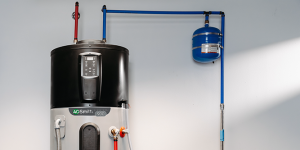Solar Panel Cost in Texas: Local Installation Prices
The cost of going solar in Texas is about $2.51 per watt, slightly lower than the national average of $2.85 per watt. This means Texans can save more by going solar than some other U.S. residents. As for specific pricing, you can use our solar cost calculator to estimate the cost of solar for your home.
Below is an overview of solar panel pricing for different system sizes in Texas. We also listed the net price of each system after considering the federal solar tax credit.
What Affects the Cost of Solar Panels in Texas?
The cost of solar panels varies based on several factors, including your installer, location, equipment quality and system size. Here is an overview of the key factors that can affect system pricing:
- System size: The cost of a solar panel system depends mainly on its size, which in turn depends on your home’s energy needs. Considering the average Texas household has a monthly energy consumption of around 1,132 kilowatt-hours (kWh), a typical home would need an 8 or 9 kW system. Based on the state’s average cost of $2.51 per watt, an 8 or 9 kW system would cost around $20,080 to $22,590. However, smaller homes may have lower energy usage, leading to a smaller and cheaper system. You may also be able to cut system costs with other home energy-efficient improvements, such as upgrading your lighting, insulation or HVAC system.
- Solar equipment quality: The components in a home solar system can have a broad price range. For instance, high-efficiency, cutting-edge solar panels will cost more than cheap solar modules without bells and whistles. The type of solar panel you choose also affects pricing — for example, monocrystalline panels are slightly more expensive than polycrystalline panels. The same is true for other components, like solar inverters and batteries. Other factors, such as the silicon market pricing and global supply chain conditions, can also affect the cost of solar equipment.
- Solar incentives: Solar incentives, such as tax credits and rebates, are meant to promote environment-friendly technology by reducing the cost of going solar. Federal and state policies that extend solar tax credits and tax exemptions can lower the price of your system. Your local government or utility company may also offer solar rebates or net metering.
- Net metering: Net metering is a solar policy that allows homeowners to send the excess energy their panels produce back to the grid in exchange for energy credits. You can then apply those credits toward your monthly utility bill. Net metering allows homeowners to benefit from excess energy without purchasing a solar battery, which reduces the total amount spent on a system. All utility companies in Texas currently offer net metering.
Solar Incentives in Texas
Besides saving on energy bills, solar panel owners can benefit from several solar incentives in Texas. Solar incentives and rebates can help lower the cost of a solar system or increase your overall energy savings. The most significant solar incentive in Texas is the solar Investment Tax Credit (ITC), which allows you to claim a tax credit worth 30% of your total system cost.
The state of Texas, local authorities and utility companies also offer incentives to make it easier for homeowners to go solar. Here is an overview of the state and local incentives available in Texas:
- Property tax exemption: Solar panel buyers in Texas can claim property exemption from the assessed value of a home solar system, even if their home value increases after installing solar.
- Austin Energy Residential Solar Photovoltaic Rebate Program: Homeowners who purchase a solar power system and complete Austin Energy’s solar education course are eligible for a $2,500 rebate. The components of your system must be pre-approved and have a 10-year warranty to qualify. Your system must also be grid-connected and installed by a company on Austin Energy’s registered installer list.
- CPS Energy Rooftop Solar Rebate: Small businesses, schools and nonprofits that install solar panels in Texas are eligible for a rebate of up to $0.60 per watt of installed capacity.
- Oncor Electric Delivery Residential Solar Program: Oncor Electric Delivery offers rebates to customers who install solar systems with a battery backup. To be eligible, your solar panel installation must be done by an authorized company and have a grid interconnection.
- Sunset Valley Solar Rebate Program: The city of Sunset Valley offers a rebate of $1 for every watt of solar installed, up to $3,000. Funds are available on a first come first serve basis.
Best Solar Installation Companies in Texas
Texas is home to more than 600 solar companies, including some of our picks for the best solar installers nationwide. With so many options, Texans may find it difficult to select the right solar company. Based on factors such as services, pricing, warranties and reputation, we selected the following providers as the top solar companies in Texas.
Are Solar Panels Worth It in Texas?
There are a number of factors that make solar worth it in Texas. First, the state receives an average of 2,800 sunlight hours per year, which is significantly higher than some other states. Texas also has attractive solar incentives to help you save on the cost of solar panels. Plus, solar panels offer higher electric bill savings as state power costs rise, totaling thousands of dollars over the 25-year lifetime of a system.
Solar also brings other benefits, like lowering your carbon footprint using clean energy generation, increasing the value of your home and offering protection against power outages. Therefore, it is no surprise that Texas already has enough solar panels to power more than 2 million homes.
How We Gathered Our Cost Data
We conducted in-depth research and analyzed several factors when determining our cost data, including:
- Conducting surveys: In March 2023, we polled 1,000 homeowners with a photovoltaic system on the cost of their residential solar panels, then compared the average price by system size and installer.
- Researching reliable sources: We gathered information from reliable solar sources like the Solar Energy Industries Administration (SEIA), the National Renewable Energy Laboratory (NREL) and Energy Information Administration (EIA) to assess the national average cost of solar panels, as well as the cost of electricity and solar power systems by state.
- Consulting experts: We spoke with experts like Jesse Solomon, the co-founder of NCSolarNow, to understand the costs of going solar for both customers and installation companies.
Aniket Bhor is a solar engineer who has spent nearly a decade studying and working in the solar power sector in the European, Asian and North American markets. He is a climate enthusiast and avid cyclist, and he also loves to lose himself in books and cooking.
Tori Addison is an editor who has worked in the digital marketing industry for over five years. Her experience includes communications and marketing work in the nonprofit, governmental and academic sectors. A journalist by trade, she started her career covering politics and news in New York’s Hudson Valley. Her work included coverage of local and state budgets, federal financial regulations and health care legislation.
Read the full article here














